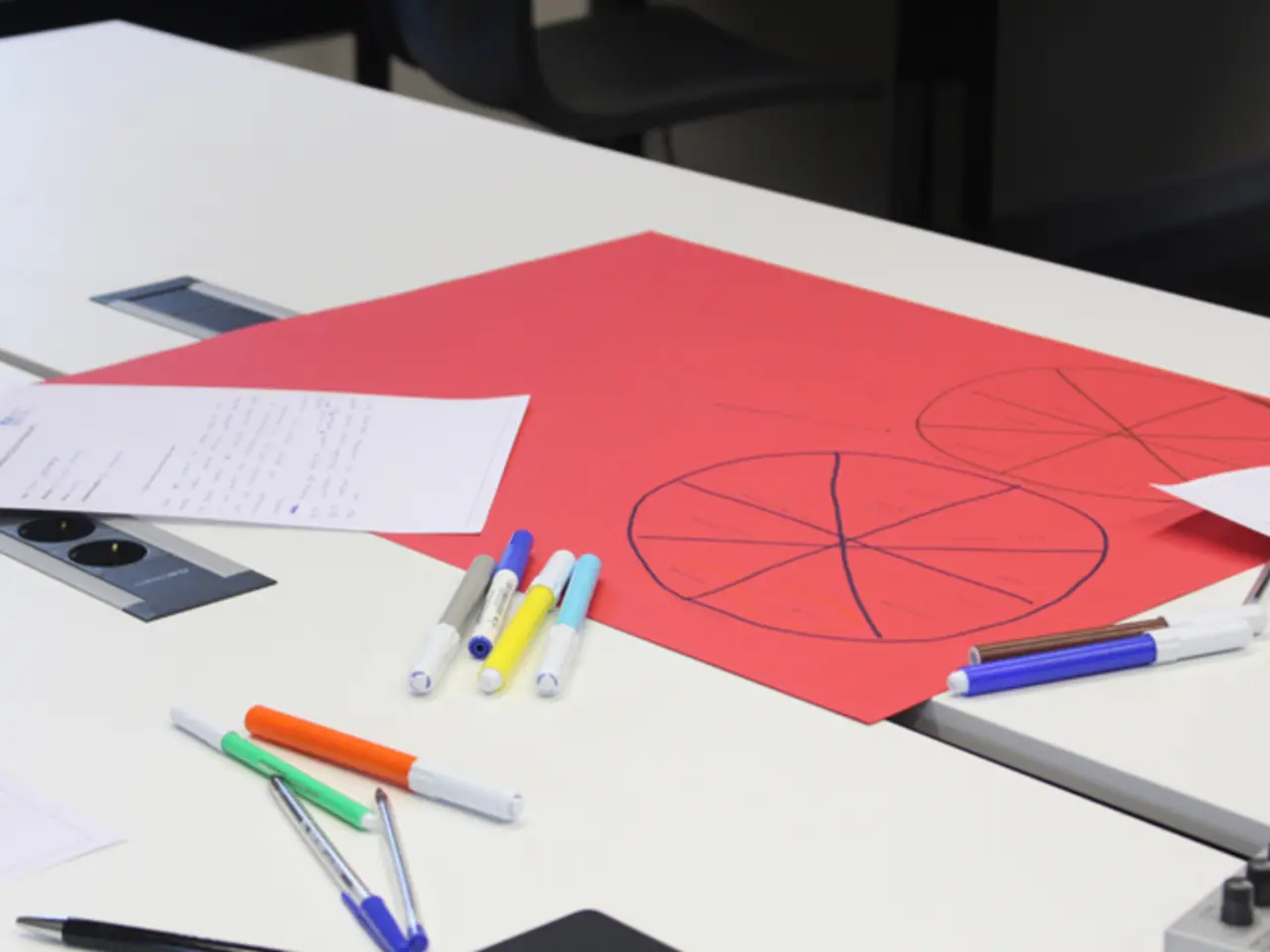Strategies for Overcoming Procrastination Caused by ADHD: Useful Advice
Procrastination is a common struggle for many, but for those with Attention Deficit Hyperactivity Disorder (ADHD), it can be particularly challenging. ADHD is a neurodevelopmental disorder affecting approximately 8.4% of children and 2.5% of adults, characterised by symptoms like inattention, hyperactivity, and impulsivity.
One of the primary reasons for procrastination in people with ADHD is executive function deficits, which include planning, organising, and task completion. To tackle this, a variety of strategies can be employed.
Organisational Tools and Techniques
Daily Brain Dump
Writing down all thoughts and tasks, then prioritising and organising them into categories with deadlines and reminders helps reduce overwhelm and makes tasks manageable. This technique, often referred to as a daily brain dump, can be a powerful tool in managing procrastination.
Task Breaking
Breaking goals into the smallest actionable micro-tasks and focusing on completing one or two at a time reduces executive function demands and increases momentum. This approach, when combined with a clear plan and deadlines, can help individuals with ADHD stay on track.
Body Doubling/Accountability
Working alongside another person or regularly checking in with an accountability partner improves persistence and reduces avoidance by creating external structure and motivation. This can be particularly beneficial for those struggling with task initiation.
Movement and Exercise
Taking quick breaks to move or scheduling daily exercise improves ADHD symptoms, memory, and attention, helping sustain productivity. Regular physical activity can serve as a valuable ally in the fight against procrastination.
Strategic Pivots
Allowing oneself to shift focus temporarily to novel or different tasks can replenish dopamine and renew interest in previously stalled activities. This strategy, known as strategic pivots, can help maintain motivation and focus.
Mindfulness and Self-Compassion
Using mindfulness techniques helps manage negative emotions around procrastination, increase self-awareness, and stay grounded in the task. Reframing setbacks as learning opportunities fosters resilience, an essential quality in overcoming procrastination.
Limiting Distractions and Visual Clutter
Removing environmental distractions and using colour coding or efficient task ordering can help maintain focus. A clutter-free and organised workspace can serve as a powerful aid in reducing procrastination.
Professional Support
Seeking diagnosis and treatment, including medication, therapy (such as Acceptance and Commitment Therapy), and support groups, can reduce procrastination by addressing underlying ADHD symptoms. If procrastination significantly impacts daily life and is accompanied by other mental health issues like anxiety or depression, it may be necessary to seek professional help.
Visual reminders such as sticky notes, whiteboards, or colour-coded lists can aid task initiation and follow-through for individuals with ADHD. The Pomodoro Technique, which involves working in 25-minute spurts with 5-minute breaks, can also help maintain focus and productivity.
In conclusion, procrastination in individuals with ADHD is a complex issue, but with the right strategies, it can be effectively managed. The journey towards overcoming procrastination is a personal one, and it's important to celebrate small victories along the way. Progress, after all, is often made one step at a time.
[1] Green, M. F., & Myerson, J. (2014). The effects of daily routines on task performance in individuals with ADHD. Journal of Applied Developmental Psychology, 35(3), 114-121.
[2] Safren, S. A., Wilson, S. H., & Mercer, S. W. (2005). Cognitive-behavioral therapy for ADHD: A systematic review. Journal of Consulting and Clinical Psychology, 73(1), 101-113.
[3] Flett, G. L., Hewitt, P. L., & Harsch, K. (1995). Perfectionism, self-consciousness, and procrastination: A test of the self-worth-consequences model. Journal of Personality and Social Psychology, 69(5), 821-832.
[4] Barkley, R. A. (2010). Taking charge of ADHD: The Complete, Authoritative Guide for Parents. Guilford Press.
[5] Ratey, J. J., & Hagerman, E. (2008). Spark: The Revolutionary New Science of Exercise and the Brain. Little, Brown Spark.
- Incorporating mindfulness techniques and self-compassion into a daily routine can help individuals with ADHD manage negative emotions related to mental health issues like procrastination, increase self-awareness, and foster resilience, as supported by various health-and-wellness research.
- Employing strategic pivots, such as shifting focus to novel or different tasks when necessary, can help replenish dopamine levels and renew interest in stalled activities, thus contributing to improved productivity and overcoming procrastination, as suggested by science.
- To reduce procrastination and improve productivity in individuals with ADHD, it's essential to maintain a clutter-free and organised workspace, utilise colour-coded lists, employ time-management tools like the Pomodoro Technique, and even seek professional support like therapy and support groups when necessary, as advocated by both mental-health and scientific communities.




